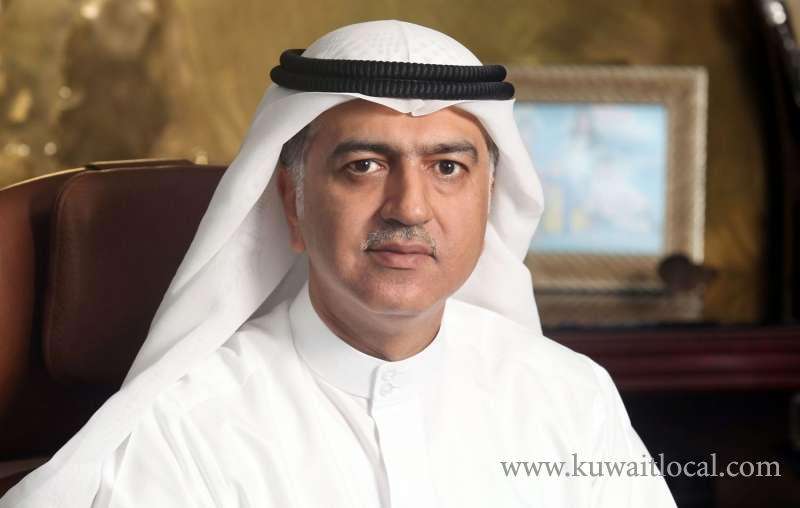Latest News
- 64 Cars Seized And 29,604 Traffic Citations Issued
- Increased Summer Electricity Demand Forecast In Kuwait
- Ethiopia And Kuwait Plan To Discuss Domestic Workers
- Syrian Expat Threatened By Fake Police
- PAM To Provides Shelter For Male Expat Workers
- Unemployed Kuwaitis Keep On Increasing Annually
- Fight Between Two Expats Leads To Stabbing At A Gas Station
- Kuwait Has One Of The Lowest Infection Rates In Its Health Facil...
- 70 Abandoned Vehicles Were Removed In Farwaniya
- Passengers' Dispute Leads To Delay And Legal Action On A Kuwait...
- Sahel App Launches Electronic Ration Card Renewal
- Education Officials Ban Filming And Publishing Student Content
Kpc Sees High Demand For Energy Next Two Decades

Demand for energy is forecast to edge up by 33 percent in the coming two decades, anticipated CEO of Kuwait Petroleum Corporation (KPC) Hashem Hashem, citing recent OAPEC figures. Hashem made the remark in a speech he delivered on behalf of Minister of Oil and Minister of Electricity and Water Khaled Al- Fadhel during the fifth version of the GCC Energy Strategy Forum, hosted by the KPC on Tuesday. He expected the share of the Organization of Petroleum Exporting Countries (OPEC) in global oil supplies to shoot up to 36 percent by 2040 from 34 percent in 2017.
He noted that for the third year, global investment in energy dipped to USD 1.8 trillion in 2017. Hashem reassured that the strategic plans of the Kuwaiti oil sector until 2040 cover the development of various activities and shore up the Kuwaiti economy by means of creating jobs, training young people and boosting their technical capabilities, and going ahead with financial diversification blueprints.
The KPC is eager to fulfill the international criteria of high-quality and environmentally friendly oil byproducts, while expanding refining operations so as to meet local demand for energy, the KPC’s CEO echoed. Secretary-General of the Organization of Arab Petroleum Exporting Countries (OAPEC) Abbas Al-Naqi addressed the event by saying that member states own roughly 705 billion barrels of oil, which make up 47.9 percent of the world’s oil reserves.
The quota of the OAPEC’s Gulf member states constitute around 33.7 percent of global oil stocks, Al-Naqi added. OAPEC members produce 24.7 million barrels of oil per day, which make up roughly 28 percent of global output, while Gulf member states share about 21 percent of the world’s production, he remarked. The OAPEC chief predicted member states to boost their refining capacity by 1.9 million barrels per day following the setting up of new refiners in Kuwait, Saudi Arabia, Iraq, Algeria and UAE, not to mention refinery production expansions in Bahrain and Egypt.
Trending News
-
 Expat Residency Law Amended By Kuwait Ministerial...
20 April 2024
Expat Residency Law Amended By Kuwait Ministerial...
20 April 2024 -
 Ministry Announces Separate Time For Amnesty Seeke...
21 April 2024
Ministry Announces Separate Time For Amnesty Seeke...
21 April 2024 -
 The Ministry Connects With Violators Of Residency...
23 April 2024
The Ministry Connects With Violators Of Residency...
23 April 2024 -
 AstraZeneca Admits Covid Vaccine Can Cause Rare Si...
29 April 2024
AstraZeneca Admits Covid Vaccine Can Cause Rare Si...
29 April 2024 -
 Work Permits Will Be Issued For One Year Under The...
27 April 2024
Work Permits Will Be Issued For One Year Under The...
27 April 2024 -
 3 Expats Caught In Salmiya With 213 Bottles Of Loc...
23 April 2024
3 Expats Caught In Salmiya With 213 Bottles Of Loc...
23 April 2024 -
 Temperature Increases Cause Electricity Load Index...
21 April 2024
Temperature Increases Cause Electricity Load Index...
21 April 2024 -
 Al-Nuer Festival Celebrates Kuwaiti Agriculture Wi...
22 April 2024
Al-Nuer Festival Celebrates Kuwaiti Agriculture Wi...
22 April 2024 -
 Peak-time 'cut-offs' Raise Fears Of An Electricity...
22 April 2024
Peak-time 'cut-offs' Raise Fears Of An Electricity...
22 April 2024 -
 Gulf Electrical Interconnection Project Will Boost...
04 May 2024
Gulf Electrical Interconnection Project Will Boost...
04 May 2024












Comments Post Comment